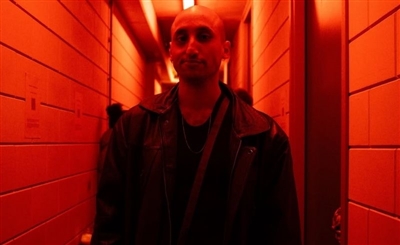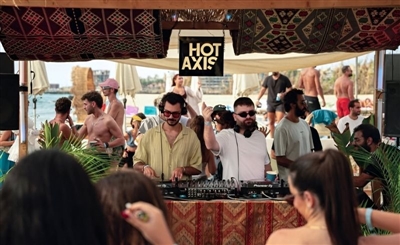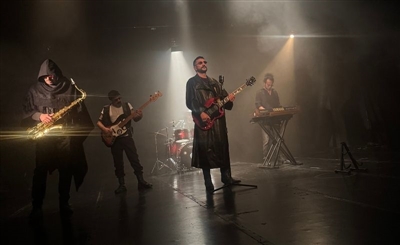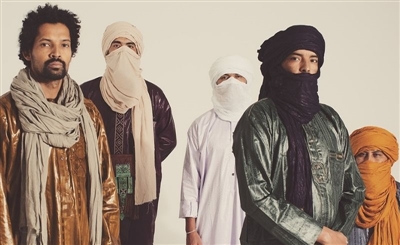Mayssa Jallad Drops Emotive Debut Solo Album, ‘Marjaa'
Jallad’s album travels across ambient, experimental folk, and modern Arabic with poignant songwriting and contributions from some of Beirut’s leading contemporary musicians.
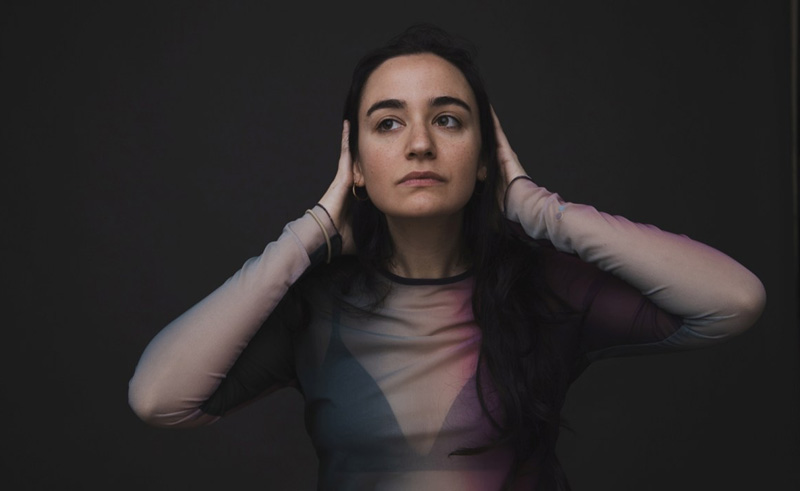
In an overwhelmingly creative and critical act, Mayssa Jallad turns the destruction of the Lebanese Civil War into a stunning, two-sided album driven by poetic songwriting mixed with historical narration, lush strings and synths, gentle drones, and her incredible vocal prowess. Released on the Beirut-based label, Ruptured Records, ‘Marjaa’ is “a poetic reflection on / imaginary narration of Beirut's infamous ‘War of the Hotels’, one of the determining (and bloodiest) events of the Lebanese Civil War,” as described by the label.
The body of work was “born out of merging Jallad’s two vocations, music and urban research and architectural history,” as written in the album’s liner notes. It is a reference to her master’s thesis in Historical Preservation, where in ‘Marjaa’ Jallad sees architecture as a “main protagonist of the battle” and so this sonic journey becomes one about time, but also space.
While the album is anchored in challenging themes, as a listening experience, Jallad’s voice manages to pierce through any act of violence with a curative harmony and unpredictable range. Listening to ‘Marjaa’ is to remember the power of the human vocal when it is raw and lying in a bed of strings with a story to tell that is both difficult, and yet full of narrative power.
We hear this instantly in the album’s opener, ‘Etel’, which features contributions by Youmna Saba on oud, the album’s co-producer Faddi Tabbal on synth, and Jallad on vocals and nylon guitar. The track opens up with the tenderness and intimacy of an acoustic atmosphere with subtle and gentle drone sweeps, with Jallad’s vocal abstractions finding a fleeting home with the strings.
Previously of the band Safar, this is Jallad’s first album as a solo artist, and in ‘Marjaa’ we encounter her unique ability for writing lyrics, storytelling, and singing history in a way that amplifies it while also calling it into question. Written in two sections, “Part A: ‘Dahaliz’, is a “stroll in the city, where Jallad tries (and fails) to follow an old map.” As further described in the liner notes, in “Part B: ‘Maaraka’, Jallad inhabits the building of the 'Battle of the Hotels', as its events unfold.”
Throughout the album we hear contributions from some of Lebanon’s leading musicians, be it Julia Sabra, Pascal Semerdjian and Marwan Tohme from Postcards; Fadi Tabbal who runs Tunefork Studios; electronic producer Sary Moussa, buzuk player Farah Kaddour; and experimental folk musicians Youmna Saba and Yara Asmar.
While the album is instantly captivating, there is something particularly mesmerising about ‘Kharita’ on ‘Part A’. In it we hear Jallad’s vocals deconstruct, with only one line that is stretched apart and repeated again, melded together with a powerful harmony that contrasts brilliantly against the lyrics of loss that sing,
"I walk the streets alone, in my hands a map
That I don’t understand"
Other stand-out musical experiences on ‘Part A’, include the sombre, ‘Haigazian October22’ where her storytelling and masterful vocal control combine with Tabbal’s warm synth pads.
As we enter into Part B: we encounter more of these musical captivations with ‘Markaz Azraq December 6’, and enter further into this historical journey Jallad has put forth. Again her voice is front and centre, backed only by an acoustic guitar and gentle singing that contrasts masterfully against the lyrics that sing of a horrific past.
The album constantly rotates through acoustic-styled, vocal-centric songs only to find a vocal narration outro in ‘Al Hisar December 8’, followed by a heart-wrenching exchange between Jallad’s vocals and keys, with Tabbal on synth and bass and Pascal Semerdjian on drums.
‘Marjaa’ closes out with ‘Al Irth’, sound designed by Tabbal, with Yara Asmar on metallophone, the song is tells the final chapter of the ‘Battle of the Hotels’, in another sung narration of a violent moment in Lebanon’s history where Jallad warns that even though it happened in the past,
“We inherited it
In our violent present”
Listen to ‘Marjaa: The Battle of Hotels’ here:
- Previous Article test list 1 noise 2024-03-13
- Next Article Ferkesh: Mai Elgizouli
Trending This Month
-
Jan 29, 2026



